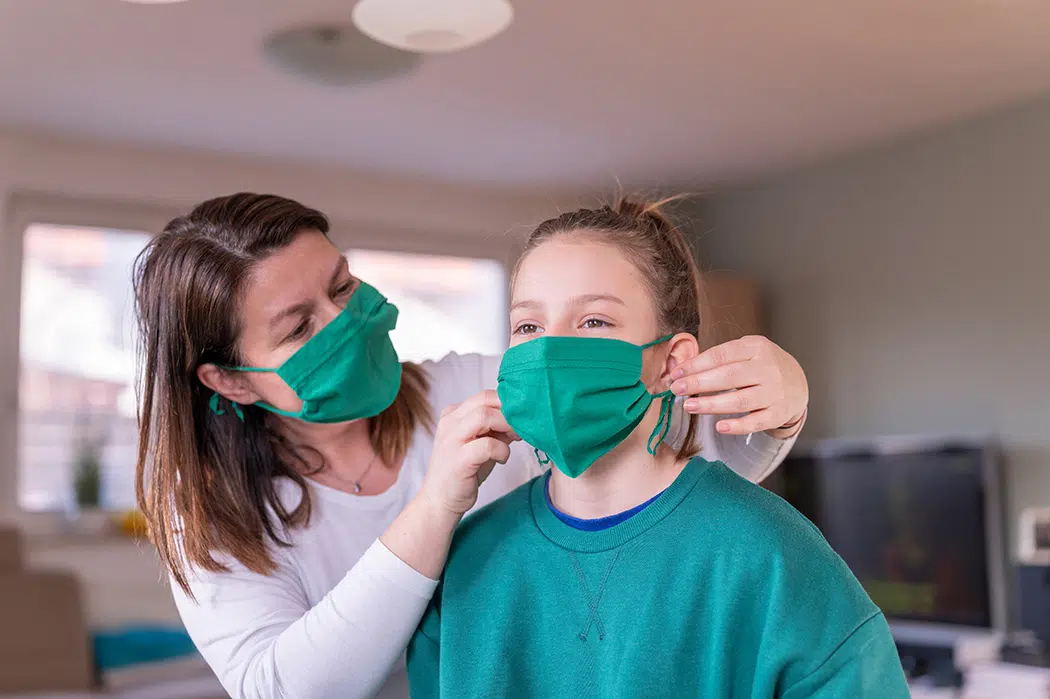
 Effingham, IL -(Effingham Radio)- The Centers for Disease Control and Prevention (CDC) and the U.S. Surgeon General recommend the practice of universal masking when in public and interacting with others. Universal masking, in addition to the practices of physical distancing and proper hygiene, helps to curb the spread of coronavirus disease 2019 (COVID-19).
Effingham, IL -(Effingham Radio)- The Centers for Disease Control and Prevention (CDC) and the U.S. Surgeon General recommend the practice of universal masking when in public and interacting with others. Universal masking, in addition to the practices of physical distancing and proper hygiene, helps to curb the spread of coronavirus disease 2019 (COVID-19).
The HSHS southern Illinois hospitals of HSHS St. Elizabeth’s Hospital in O’Fallon, HSHS St. Anthony’s Memorial Hospital in Effingham; HSHS St. Joseph’s Hospitals in Breese and Highland, and HSHS Holy Family Hospital in Greenville, offer the following answers to some of the most frequently-asked-questions about universal masking. In addition, they offer tips on the proper use and disposal of gloves if members of the public choose to wear them.
Universal Masking
What does “universal masking” mean?
It means that everyone (if able) should wear a mask. There are some exceptions, including children under the age of two, anyone who has trouble breathing, or is unconscious, incapacitated or otherwise unable to remove the mask without assistance.
What type of mask should I wear?
Medical-grade masks, such as surgical masks or N95s, should be reserved for medical personnel only during this critical time. Therefore, the CDC recommends cloth masks for community members. There are tutorials for making masks with and without a sewing a machine, on the CDC website (https://www.cdc.gov/coronavirus/2019-ncov/prevent-getting-sick/diy-cloth-face-coverings.html). Some tutorials call for the use of common items, such as t-shirts and bandanas, with no sewing required.
When should I wear a cloth mask?
You should wear your cloth mask if you must leave your home for any public setting such as a grocery store, gas station, pharmacy or other essential business. You should also wear it if you are interacting with anyone outside your home for any reason.
Will wearing a cloth mask prevent me from contracting COVID-19?
Wearing a cloth mask is not guaranteed to prevent you from contracting COVID-19. Cloth masks provide source control which is preventing the spread of germs from the person wearing the cloth mask. It is important physical distancing (staying at least 6 feet from others) is still practiced, as much as possible, while wearing one.
If wearing a cloth mask will not guarantee me full protection from COVID-19, then why is it important I wear one?
Studies show a significant portion of individuals infected with COVID-19 do not show symptoms, and that even those who eventually develop symptoms can transmit the virus before showing symptoms. Wearing a cloth mask can help to keep your respiratory secretions (where the virus can live) contained and prevent them from spreading to others. A mask can also prevent you from touching your nose and mouth, where the virus can easily be spread.
How does one safely remove a used cloth mask?
Individuals should be careful not to touch their eyes, nose and mouth when removing their mask, and wash hands immediately after removing.
How should I store the mask when not in use during the day?
Carefully fold the mask so the “dirty” public-facing side is folded against each other. Think “dirty to dirty.” Put it in clean bag. Then go wash your hands.
Should cloth masks be washed or cleaned?
Yes. They should be routinely washed in a washing machine, or with soap and hot water, depending on frequency of use.
Gloves Usage
Are gloves recommended for the general public?
The CDC is not recommending the general population wear gloves when out in public places. The only way gloves are effective is if you change them as often as you should wash or sanitize your hands, which means you would be changing gloves nearly constantly. The most reasonable use of gloves would be for times like at the gas pump or other single uses where you can’t wash your hands. But then treat the gloves as an extra layer of skin that you can shed before you touch your face, your car door, or any surface you don’t want to contaminate. People can get by without gloves if you are washing your hands frequently and paying attention to what you touch.
Will wearing gloves keep me from getting the virus or transferring the virus from one surface to another?
Some people may get a false sense of security from wearing gloves, but they will not prevent you from transferring germs from a contaminated surface to another surface, thus contaminating that one. If you touch a doorknob with gloves on, then touch your face with those same gloves, you’ve transmitted germs from the doorknob to your face.
If I choose to wear gloves, what is the proper way to use them?
Treat them as you would your hands – if you would wash your hands after touching something, then you need new gloves or to wash them.
How do I remove the gloves to not contaminate myself with “dirty” gloves?
Take them off so they’re inside out, one at a time:
- Carefully pinch the first glove in the center of your palm and work your glove down off your wrist. Do not touch your bare skin that is being exposed.
- Peel the glove down off your hand, pulling it inside out.
- Hold the glove you just removed in your gloved hand.
- Peel off the second glove by putting your fingers inside the glove at the top of your wrist.
- Turn the second glove inside out while pulling it away from your body, leaving the first glove inside the second.
- Dispose of the gloves safely in a trash can. Do not reuse the gloves.
- Clean your hands immediately after removing gloves.
For more information about coronavirus (COVID-19), visit cdc.gov/coronavirus.
About Hospital Sisters Health System
Hospital Sisters Health System’s (HSHS) mission is to reveal and embody Christ’s healing love for all people through our high quality, Franciscan health care ministry. HSHS provides state-of-the-art health care to our patients and is dedicated to serving all people, especially the most vulnerable, at each of our 15 Local Systems and physician practices in Illinois (Breese, Decatur, Effingham, Greenville, Highland, Litchfield, O’Fallon, Shelbyville, and Springfield) and Wisconsin (Chippewa Falls, Eau Claire, Oconto Falls, Sheboygan, and two in Green Bay). HSHS is sponsored by Hospital Sisters Ministries, and Hospital Sisters of St. Francis is the founding institute. For more information about HSHS, visit www.hshs.org. For more information about Hospital Sisters of St. Francis, visit www.hospitalsisters.org.








Comments